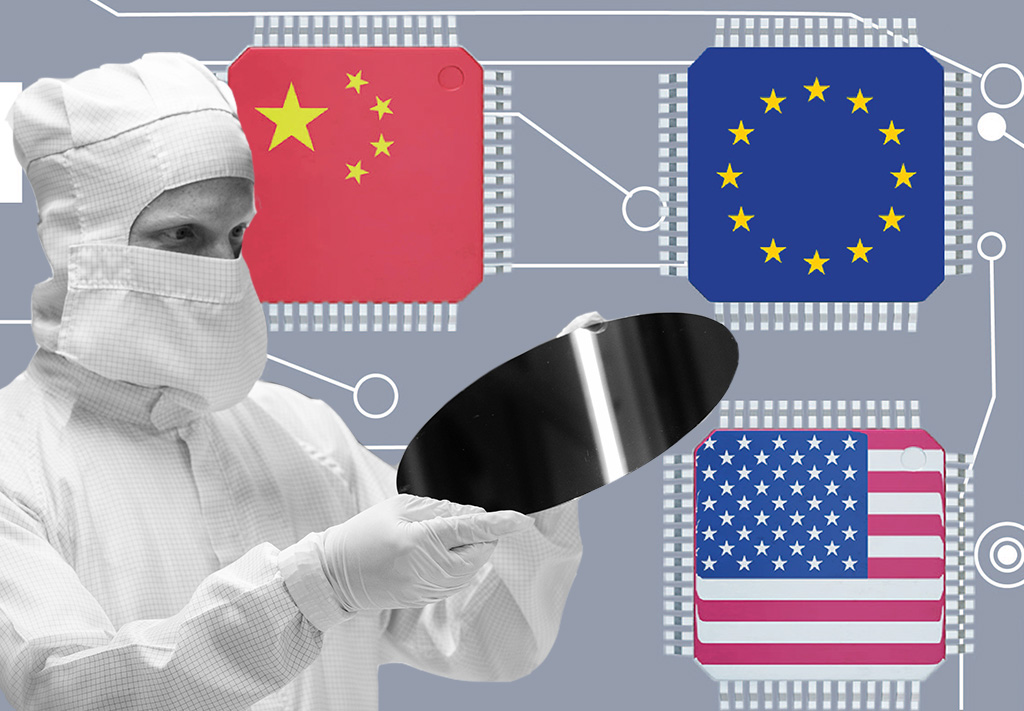DMA: Will it Leave Europe’s Consumers Behind?
Although Europe is right to regulate tech, its rules often leave Europeans dependent on second-rate products.
The post DMA: Will it Leave Europe’s Consumers Behind? appeared first on CEPA.
Our iPhones are being sterilized. Apple’s much-ballyhooed artificial intelligence features incorporated into iOS 18 will not be available in Europe. The culprit is the new Digital Markets Act (DMA), designed to curb the digital giants’ anti-competitive practices. It requires Apple phones to allow rival products and services to function with its devices. This interoperability requirement could “force us to compromise the integrity of our products in ways that risk user privacy and data security,” Apple says.
Second-rate products are the downside of stringent European regulations. While the rules aim to protect people’s rights, they are beginning to frighten companies from bringing their latest innovations to the continent. Are we prepared to accept being treated like children by our regulators, unable to enjoy a product or service? A certain amount of protection is one thing, considering the excesses of some tech leaders. But should it come at the expense of preventing obtaining the latest innovations?
The questions are new. Until recently, companies launched new European products and dared regulators to object. Since Europe’s regulators tend to see all new products or services as suspicious or a possible threat, fines accumulated, reaching billions of euros. Companies paid. Fines were less important than access to a tempting market with 27 member states and a population of over 450 million, many of whom have a high average income. When queried about expensive or restrictive rules, European regulators often just responded, “That’s the cost of doing business.”
But increasingly, this price may just be too high. Companies are starting to launch in the rest of the world, skip Europe, and keep older versions there until they have gained traction in other markets. If you drive a Tesla in the United States, it’s self-driving and can go from one side of the country to the other without touching the steering wheel or pedals.
In Europe, even if you have paid for that feature, forget it: the regulator forces you to take the steering wheel every few minutes. Want to use the full self-driving feature? Not allowed. Even worse: Tesla has been forced to disable some features that its customers were already using! Tesla’s autonomous driving, while blamed for some fatal accidents, is infinitely safer than manual driving. But if you’re European, too bad.
After the DMA went into effect this spring, Meta’s Messenger app asked Europeans to choose between using it with their Facebook account and creating a new one. Only if they chose the first option would they “be able to message their Facebook friends and communities.”
The DMA prohibited Google from ranking its products at the top of many search engine results. For example, if you searched for a flight, Google could no longer put its flight comparison service, Google Flights, at the top. Google Maps has been degraded, too. When looking for a place’s address, it’s now impossible to click on the map that appears in your search results.
European regulators hope to make regulation a competitive advantage. They say the new DMA rules allow small David upstarts a fair chance to take on the Goliaths. Since European rules usually end up being applied in one form or another in the rest of the world, the dangers of companies opting to stay away are limited.
Apple’s decision not to launch its own artificial intelligence features in the European Union provoked a furious response. It’s a “stunning declaration” of anticompetitive behavior, European Commission Vice President Margrethe Vestager complained. “Apple designed its new business model to discourage app developers and end users from taking advantage of the opportunities afforded to them by the DMA.”
European regulators hope to make regulation a competitive advantage. They say the new DMA rules allow small David upstarts a fair chance to take on the Goliaths. Since European rules usually end up being applied in one form or another in the rest of the world, the dangers of companies opting to stay away are limited.
That’s well and good, but what happens if companies that have accepted the price of European regulation decide that Europe is no longer the priority? They will not stop selling their products and services here but may hold back on their newest ones.
In this case, regulation provides no advantage beyond finding foreign companies that want to market their products and services in Europe. What’s more, paradoxically, Brussels fines the companies whose products and services have the biggest market share, the most successful, and those that we here in Europe want.
The saying goes, US innovates, China imitates, and Europe regulates. Not anymore. The US still innovates. “Made in China” once meant cheap products, often counterfeit and always of low quality. Today, it is home to state-of-the-art technologies and engineering, from decarbonization and energy to AI. Europe, for its part, must learn to export more than its regulations.
Enrique Dans is a non-resident Senior Fellow with the Digital Innovation Initiative at the Center for European Policy Analysis and a Professor of Innovation at IE University in Madrid.
Bandwidth is CEPA’s online journal dedicated to advancing transatlantic cooperation on tech policy. All opinions are those of the author and do not necessarily represent the position or views of the institutions they represent or the Center for European Policy Analysis.
The post DMA: Will it Leave Europe’s Consumers Behind? appeared first on CEPA.

